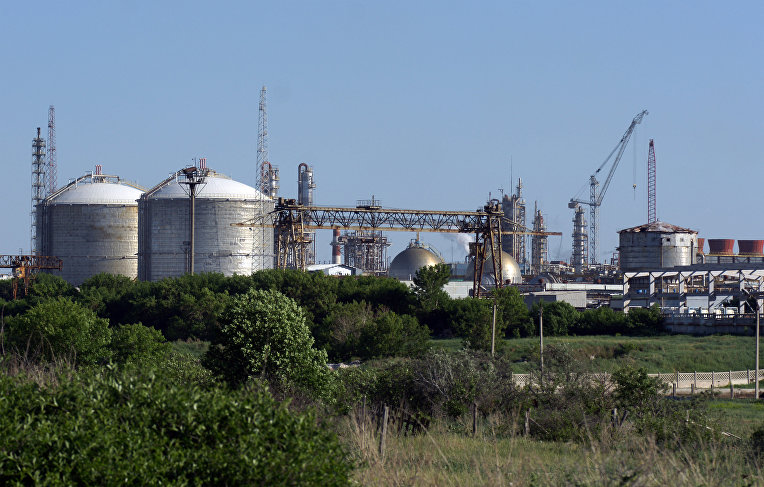MOSCOW, July 9 (RAPSI) - The Komsomolsky District Court of Togliatti has found Togliattiazot co-owners Vladimir and Sergey Makhlai, ex-CEO Evgeny Korolev and their Swiss partners Andreas Zivy and Beat Ruprect guilty of large-scale fraud committed by an organized group. The court has sentenced Vladimir and Sergey Maklhai, and Andreas Zivy to 9 years in general regime penal colony each, Korolev and Ruprecht to 8.5 years each, and a fine.
Since all the defendants have been in hiding abroad, the verdict was rendered in absentia.
The investigation established that in 2007 CJSC Corporation “Togliattiazot” president Vladimir Makhlai and his son Sergey Makhlai, who then held the post of a vice-president of the company, created an organized criminal group with the purpose to routinely misappropriate product manufactured by Togliattiazot – ammonia and urea – using their official position. For this purpose, corporate and currency bank accounts of Togliattiazot were opened at Togliattikhimbank, which received the revenue from the sale of product to Beat Ruprecht-led Nitrochem Distribution AG offshore entity. Togliattikhimbank is 100%-owned by Sergey Makhlai. That is why the funds remained at the criminal group’s disposal and were never actually transferred under JSC Togliattiazot ownership. Furthermore, to avoid taxes, the product prices were considerably understated. Nitrochem Distribution AG, a subsidiary of Andreas Zivy’s Ameropa AG, in turn, sold the product in the world market at a market price. In this way, Vladimir and Sergey Makhlai, Andreas Zivy and Beat Ruprecht embezzled about 85 billion rubles belonging to Togliattiazot and its shareholders. In the course of the proceedings, the fact of affiliation between TOAZ, Nitrochem Distribution AG and Ameropa AG was fully proven.
Former CEO Evgeny Korolev, while holding executive position at CJSC Corporation “Togliattiazot” and JSC TOAZ used his office to deliver the preparation and signing of financial reports with deliberate mispresentations as well as formation and signature of contracts and supplementary agreements with below-market product prices on JSC TOAZ behalf. For that, he was rewarded with a part of criminally-obtained profits of the criminal group.
The court also granted civil lawsuits filed by Uralchem against a group of 20 private and legal entities with a total value of over 10 billion rubles in damages to the company itself and 77 billion rubles in damages to Togliattiazot.
According to Dimitry Tatyanin, Deputy Chief Executive Officer – Legal Affairs Director of Uralchem, JSC, Uralchem company, as a victim in the case, sees the judgment as well-founded and just. Despite the intricacy and complexity of the case, the court was scrupulous in its approach to the examination of countless evidence materials and witness testimonies. Such verdict gives hope that damage sustained by the budgets of various levels as well as the victims – TOAZ plant and Uralchem company – will be fully compensated.
The proceedings spanned over a year and a half. Case papers total over 500 volumes. On multiple occasions, the media reported defense’s attempts to employ delaying tactics under various excuses. To name a few, the lawyers missed the hearings citing illness and preoccupancy with other cases, the witnesses summoned by the defense often failed to appear in court.
As Uralchem’s lawyer Alexander Nizov told RAPSI in an interview, the defense deliberately employed delaying tactics right from the start. The lawyers would constantly present claims and motions. For example, in the beginning they didn’t like that the bill of indictment was being read “too fast”. That said, the defense were allowed to read the materials multiple times. Despite several dozens of volumes entered the court record upon their motion, they claimed every refusal to grant their motion was “a violation of their rights” and tried to disrupt the hearing. As the trial was drawing to a close, a year and a half into the proceedings, one of the lawyers suddenly stated the need to urgently summon some ten foreign nationals without providing a coherent explanation as to what they had to do with the case at all. He also suggested that the court should summon those people via e-mail.
Alexander Nizov also mentioned an odd attempt to disparage the victims and the investigation. At some point, the defense stated that they saw the bill of indictment text file, the properties of which list Uralchem as the author. But they failed to provide any evidence to the court and law enforcement.
“It should be noted that the coherence and high professionalism of the prosecutor's team are highly commendable. The active stand in the process and brilliant knowledge of the case materials allowed the prosecutors to receive from the witnesses valuable testimonies condemning the defendants, often overcoming the thinly veiled intention of the witnesses to limit themselves to bare formalities,” Alexander Nizov told RAPSI.



